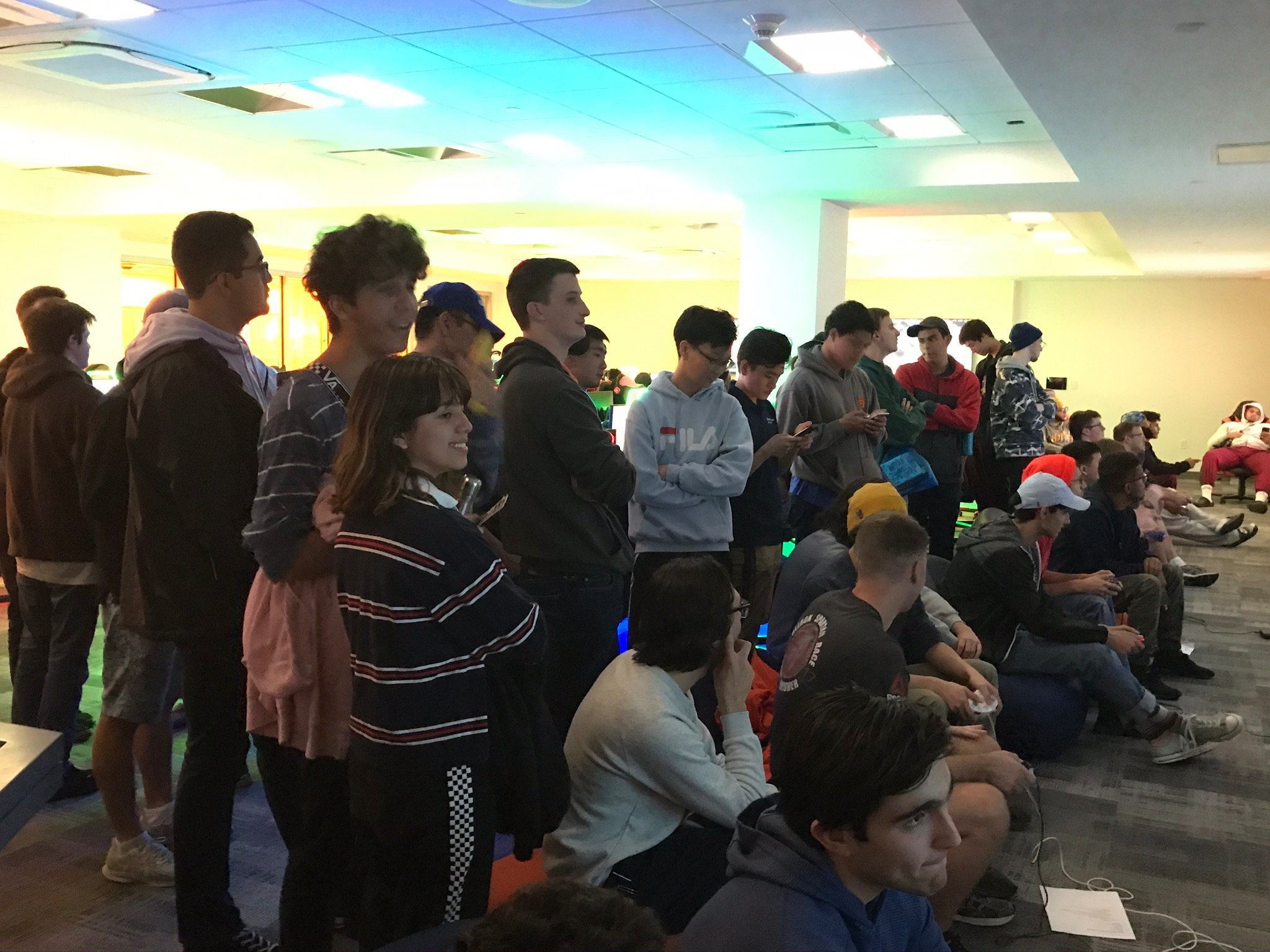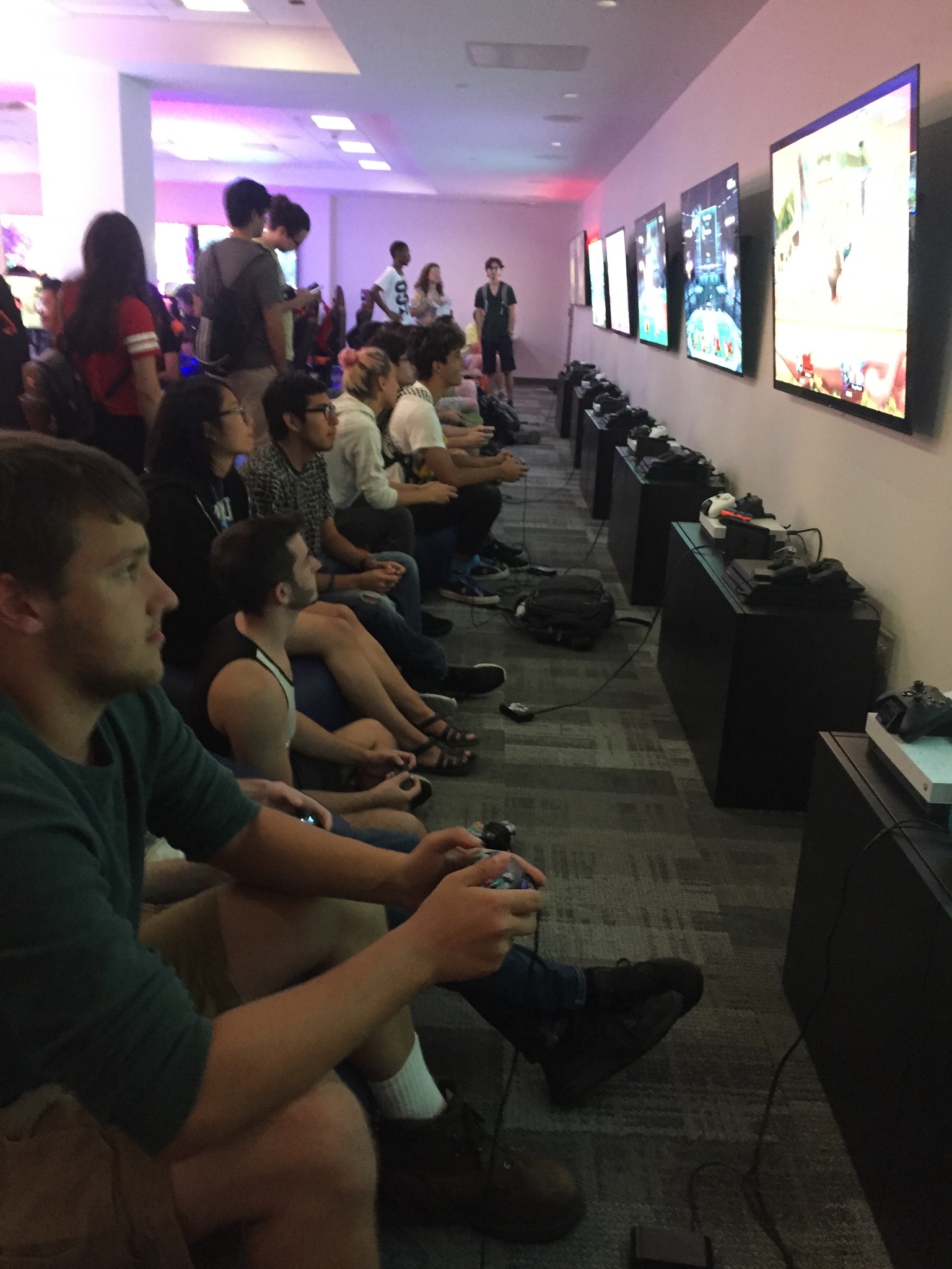By: Gillian Follett, ’22
For many students at Syracuse University, esports is more than just a hobby — it’s part of their identity.
To connect students who share a passion for esports — or video games in general — a group of students established Esports at SU, a club sports team, in 2018. Since then, the club has provided opportunities for students to come together and play competitively or just for fun.
 “A lot of people who partake in esports aren’t particularly great in social interaction, or maybe aren’t athletically inclined,” said Ethan Garcia, the ESSU secretary. “Esports and video games in general kind of act as that medium for them to be able to resonate with other people.”
“A lot of people who partake in esports aren’t particularly great in social interaction, or maybe aren’t athletically inclined,” said Ethan Garcia, the ESSU secretary. “Esports and video games in general kind of act as that medium for them to be able to resonate with other people.”
The club consists of several small, independent teams who compete against other universities. Each team specializes in a specific online game, including “Overwatch,” “Rocket League” and “Fortnite.” The teams compete in weekly matches against other colleges in a tournament format. Those with the most wins progress to the playoffs.
The club’s “Rainbow Six Siege” team recently made it to the Collegiate Esports Association playoffs. Trent Pitoniak, vice president of ESSU, said that the progress the team has made over the past few months has been astounding.
“They lost in the first round of the playoffs, but they went from last year having zero wins to making the playoffs this year,” Pitoniak said.
ESSU’s growing success in competitive gaming demonstrates how far the club has come since its initial founding. Over the past few months, the club’s membership has swelled to over 600 students, over six times the club’s size last semester, Pitoniak said.
About 50 members make up ESSU’s competitive teams. Other members can participate in casual events where students gather to play games such as “Mario Kart” or “Minecraft,” said Katie Willard, ESSU’s community coordinator. The club also holds on-campus tournaments, with its “Super Smash Bros.” events drawing in the biggest crowds.
“Even if people don’t want to go and compete on the highest level, they can still have fun,” she said. “They can find other like-minded people who they probably wouldn’t have been able to find otherwise.”
The club’s members attribute part of ESSU’s rapid growth to the newly constructed esports room in the Barnes Center at The Arch. Garcia said the centralized space and dozens of PCs and consoles the esports room provides has enabled ESSU to develop more in-person events. Before this semester, the club mostly operated online, which made it difficult for students who didn’t have a computer equipped for gaming to participate in the club, Pitoniak said.
“(The esports room) is really good for international students,” he said. “We have a lot of Chinese players, and they mostly play in the room. It’s hard to bring a computer over from China.”
 ESSU’s explosion in membership has shocked many of its executive board members. Before this semester, the club had never competed in large esports tournaments — but in a matter of months, ESSU has gained national recognition and secured several sponsors, from Mountain Dew to the text chat app Discord.
ESSU’s explosion in membership has shocked many of its executive board members. Before this semester, the club had never competed in large esports tournaments — but in a matter of months, ESSU has gained national recognition and secured several sponsors, from Mountain Dew to the text chat app Discord.
And the club is still growing.
“Every day we see new people willing to join,” Garcia said. “We always get emails from people wondering how they can get involved. Our name is established in the university now and is growing to a national scale.”
Despite the club’s growing prominence in the competitive scene, it has never lost sight of its original goal: uniting students who share a love of video games. Ryan Luo, co-event coordinator of ESSU, said students may struggle to find others with similar interests among the sea of students at the University. Joining a club like ESSU enables them to build meaningful friendships while doing something they love.
“There’s a lot of stigma with video games and such,” Luo said. “I would advise (people) to look past that and maybe see it as a passion and a way for us to all get together and really become a community.”
Esports are traditionally played online, which limits players’ communication, Garcia said. ESSU provides an opportunity for students to meet face-to-face and speak in a “nerd language” that others might not understand, he said. Many gamers find playing with others in-person more fulfilling than communicating through a headset. Garcia has seen dozens of students “light up when they come together and play games.”
Video games are a very accessible and inclusive activity, Willard said. As they play along with other members of ESSU, students can immerse themselves in the storylines of the games and easily pick up on the gameplay, she said. And students don’t need to have any athletic ability or prior talent to pick up a controller.
Without ESSU, Willard said she would still be floating around on campus trying to find her place. Now in her senior year, she feels she has finally found a group in which she belongs.
“I feel like I’m getting the best experience I can out of my education,” she said. “There’s nothing that has been as powerful as the esports club to me throughout my four years.”
